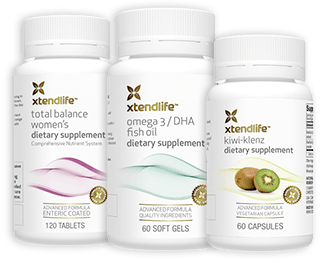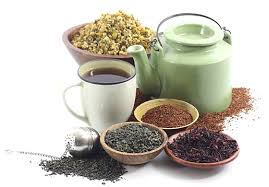Can Chasteberry Treat PMS and Other Female Issues?
Chasteberry, or Vitex Agnus-Castus as it is also called, is well-known for its use in treating many common “women’s problems.” The benefits of Chasteberry in treating Premenstrual Syndrome (PMS) and Premenstrual Dysphoric Disorder (PMDD) are such that in some cases it may equal—or even exceed—the efficacy of prescription medication. Research has found that the extract can be quite effective in relieving the painful symptoms, especially breast pain/tenderness, constipation, swelling, cramps, headache, irritability, and depression or mood alterations.
It's interesting to note that studies comparing Chasteberry’s benefits for PMDD and PMS sufferers to the prescription drug Prozac (or fluoxetine) suggested that it might even be more effective in treating the physical effects of both conditions, though fluoxetine appears to be more effective in treatment of severe psychological symptoms like depression, nervous tension, and the like.
Though there is no scientific evidence to prove its effectiveness in such cases, chasteberry is also recommended for help in achieving pregnancy, prevention of miscarriage, aiding lactation, and relieving the symptoms of menopause. Moreover, the benefits are not exclusively limited to women and “women’s issues”.
Chasteberry may help with other issues as well
Though research is still needed to demonstrate its true efficacy in such cases, some tout chasteberry as a an insect repellent, acne treatment, aid for upset stomach, headache or migraine relief, and aid in increasing urine flow. And according to legend, monks used it to inhibit sexual desire and help in keeping their vows—which may or may not be a benefit, depending on your point of view.
Though chasteberry is generally considered safe for most users, because it is thought to work by affecting women’s hormones, there is concern that it may be unsafe for women who are pregnant or breastfeeding or by those who have a hormone-sensitive condition. (Hormone-sensitive conditions include endometriosis, breast cancer, uterine cancer, ovarian cancer, and uterine fibroids.)
In addition, if you are undergoing in-vitro fertilization, the extract may inhibit the effectiveness of the in-vitro process and should be avoided. Finally, some who take the supplement may experience side effects like nausea, weight gain, itching, headaches, acne, insomnia, or changes in menstruation.
Women who are excited about Chasteberry’s benefits for feminine ailments must be equally careful about its possible interactions. Because it affects the body’s hormones, it also interacts with birth control and estrogens. Back-up birth control (such as a condom) is highly recommended for those taking contraceptives.
Finally, because chasteberry is thought to affect brain chemistry, it also interacts with medications for mental conditions (especially anti-psychotic drugs), medications for Parkinson’s disease, and the prescription drug Reglan (metoclopramide).
So is chasteberry worth trying?
As with all supplements, talk to your doctor before taking chasteberry to help relieve PMS or for any other issue you are encountering. It may be a great option for you or it may not be recommended due to other existing conditions or medication that you are currently taking.
There does exist a lot of anecdotal evidence of its efficacy so it's certainly worth consideration. Natural alternatives can be a welcome solution for many people who have tried and been unsuccessful with conventional treatments.
Read about other natural herbs like chasteberry on our medicinals page or return to the HSG home
Resources...
Search our site...
PREMIUM SUPPLEMENTS
The most advanced herbal supplements on the market
BULK HERBS AND TEAS
Need bulk herbs, teas, supplements and capsules?

